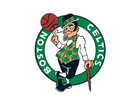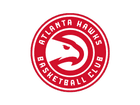Rick Strom of The Rick Strom Show allowed Antoine Walker to reflect on the harsh words from Ryan that defined his career, pulling back the curtain on what it was like to be on the receiving end of such ruthless commentary. “The simple fact of the matter is that Antoine Walker is a punk,” Ryan wrote. “Antoine Walker is such an arrogant, misguided, yes, punk, that there’s nothing either M.L. Carr, Rick Pitino, or The Pope could do with this kid.” “His juvenile mugging is classless. It irritates opponents – yes, Antoine, people on other clubs really do hate you – and it embarrasses the organization.” “He is a classic product of the modern basketball system. He is an AAU baby who has never worked at anything other than basketball in his life, and who has only met one coach – Rick Pitino – who has ever told him ‘no’ about anything. He is arrogant and clueless about his profession.” “He is merely a punk who can play a little basketball. Join me in wishing him well at his next destination.”
“I confronted him and expressed my displeasure in the article,” Walker recalls. “I asked him and basically told him to keep his comments to strictly basketball. [I told him] that I was not appreciative of some of the language that he used, and he’s taking it to a step that it’s going to get bigger than basketball. “So, we had this conversation, and I basically told him, ‘I’m gonna let you slide, but don’t come around me. You can write what you want to write. If I go 0-for-18, obviously, that’s your job; you’re gonna write it. But, keep any personal attacks of my name out of your mouth. You’re not allowed to have personal attacks of me anymore. If I go 0-for-18, you can write that. If I play bad, do what you need to do. I can’t stop you from that. But, you will never have another personal attack on me either.”
And Walker stuck to that boundary. According to Walker, Ryan never approached him for an interview again. “Obviously, when a media session was in the locker room, I’m pretty sure he’d be in the back, surrounded in there, and get comments,” Walker relayed. “We was in the playoffs a couple of years, so he covered us pretty close. I don’t know what he was writing at that point; I just kind of channeled him out. “But, as long as he didn’t say anything that I felt was taking personal attacks at me, was fine. And if I go 0-for-18, write what you’re supposed to write. I’m not telling you — you gotta do your job, but the personal attacks had to stop.”

Bob Ryan: I certainly never dreamed that in five years — to the day! — I’d be covering the Celtics opening night for the Globe. I could not possibly have imagined that I would wind up following the Celtics as a pure fan, beat writer, and columnist — and now as what I like to call a columnist emeritus — into a sixth decade. I certainly never envisioned that I would get to write clinching stories for six NBA championship teams or that someday one of their key players would be a 7-foot-3-inch Latvian. Books with Bob Cousy, John Havlicek, and Larry Bird? Unimaginable. It is now Year 60. There have been six distinct phases of my personal Celtics experience:
Bob Ryan: My basketball friends and I circled our calendars for games against the Lakers and 76ers, not to mention the NBA doubleheaders. We’d pay two bucks for the second balcony. On the night of Dec. 1, 1967, the 76ers were playing the expansion Seattle SuperSonics in the first game of a doubleheader. The Sixers won, 133-109, and Wilt Chamberlain had 52 points, which was not unusual. What was unusual was that Wilt had accumulated those 52 points while missing a still-record 22 free throws. Yup, he had 22 field goals and was 8 for 30 from the line. But my highlight of those years took place in 1966. After the Celtics defeated the Lakers in LA to force a Game 7 in the Finals, the tickets went on sale for Game 7 at the Garden. It was four to a customer. We dispatched one of my dorm floor neighbors to spend the night in line at the Garden. He would get one of those four tickets. The other three tickets would go to us via a lottery. I won a ticket and thus was present for Red Auerbach’s last game. Of course, I have that ticket stub, as well.
Advertisement

Bob Ryan: I was handed the Celtics beat at age 23 in 1969, which was a story in itself. I covered them for a first stretch of seven years, during which time they won two championships and had another season in which they won a franchise-record 68 games. Havlicek was the best all-around player in the league. From age 29 through 34, he averaged 43 minutes a game, twice leading the league in minutes played. He averaged 28 points, 8 rebounds, and 8 assists a game. He was first-team All-NBA four times and first-team All-Defense four times. And it is beyond dispute that nobody ran more. There was never anyone quite like Dave Cowens, on or off the court. After he had just grabbed 28 rebounds against Wes Unseld and Elvin Hayes, I asked Bullets coach Gene Shue what would happen if Kareem or Bob Lanier played as hard as Cowens. “Can’t happen,” Shue said. “Hustle is part of ability.”
Ford and his team conducted 44 interviews in total, 41 of which are used in the series. Those interviews include Chamberlain’s living sisters (Selina Chamberlain Gross and Barbara Lewis), longtime friends such as Sonny Hill, and basketball teammates and opponents including Billy Cunningham, Jerry West, Pat Riley, Rick Barry and Wali Jones. Chamberlain author Gary Pomerantz gets prominent time, as do longtime basketball journalists such as Bob Ryan and Jackie MacMullan, who have Boston ties and go deep on the Bill Russell-Chamberlain relationship. The filmmakers had hoped to get Russell for the project, but he was unable to do the interview for health reasons (Russell died in July 2022). There were other iconic figures the filmmakers attempted to get but were unsuccessful for multiple reasons, including Kareem Abdul-Jabbar, Michael Jordan and Arnold Schwarzenegger.
ESPN says Larry Bird, Julius Erving, Kareem Abdul Jabbar, Artis Gilmore, World B. Free, Robert Parish, Jim Gray, Luke Walton, Jamal Wilkes, Brent Musberger, and Bob Ryan have all been interview subjects for the story. The documentary will be directed by Steve James, who also directed Hoop Dreams, as well as Abacus: Small Enough to Jail. No release date was revealed by ESPN.
Q. How does a team go from a 39-33 record and a speedy three-game exit in the 1956 playoffs to a championship the next season? Bob Ryan: You get an impactful infusion of talent. Start with the greatest rookie duo ever in Rookie of the Year Tom Heinsohn and Most Valuable Player of the Century Bill Russell (who didn’t join the team until December after playing in the Melbourne Olympics). Then add returning soldier Frank Ramsey (like the other two, a Hall of Famer). Put them out there with Bob Cousy and Bill Sharman, the premier backcourt of the 1950s, and let ‘em go. It will forever be difficult to top the drama of the first Celtics title.
Advertisement

Game 1 of the Finals was a 125-123 double-overtime home loss to the St. Louis Hawks. Game 7 was a 125-123 double-overtime victory over the St. Louis Hawks. The rookies did it in Game 7. Heinsohn had 37 points and 23 rebounds. Russell had 19 points and 32 rebounds while Cousy and Sharman were having an afternoon they’d rather not talk about (a combined 5 for 40). Russell saved the game with a retreating block on Jack Coleman that both Heinsohn and Cousy say to this day was the greatest defensive play they’ve ever seen.

Championships: 3 (1981, 1984, 1986). Coaches: Bill Fitch (1981). K.C. Jones (1984, 1986). Bob Ryan: Larry Bird. Remember him? He was great, all right, but he wasn’t enough. He was the 1979-80 Rookie of the Year, but the 76ers had little trouble dispatching the Celtics in five games, largely because the Celtics were too small. But Auerbach rectified that on draft day in 1980 by pulling off an almost shameful heist, swapping his Nos. 1 and 13 draft spots for No. 3 and Robert Parish, a misused 7-foot center out there in the Bay Area. With that third pick, Auerbach took a gangly 6-11 kid from Minnesota named Kevin McHale. The result? Championship No. 14 was produced that very first year. Suddenly, the Celtics had a monstrous frontcourt, and don’t forget Cedric Maxwell, whose 28-point, 15-rebound, 10-for-13 performance in the pivotal Game 5 against Houston nailed down his Finals MVP.

There were many memorable takeaways from the 1984 victory over the Lakers, but for me the everlasting memory is the entire evening of June 8, when because of a heat wave outside and lack of Boston Garden air conditioning inside, the temperature was 97 degrees for Game 5. The Lakers, most notably Kareem Abdul-Jabbar, thought they had been trapped in a science fiction movie, but Bird treated it like just another steamy summer evening in French Lick with 34 points, 17 rebounds, and 15-for-20 shooting. So sorry you young’uns missed out on Larry. 1986? I still believe it was the greatest pre-3-point-mania team ever. They won 67, and had they thought it was a good idea, they would have won 70. They were such a spectacular nightly show in the regular season that they rendered meaningless the concept of the meaningless game.

Ready for this? They closed out the Atlanta series with a 36-6 third quarter en route to a 132-99 triumph. They then opened the Milwaukee series with a 128-96 thumping. Back-to-back plus-33 and plus-32. Pret-ty good. Pret-ty good. They received more resistance than expected from Houston in the Finals, but after coming home smarting from a nasty Game 5 loss, Bird took charge with one of his true all-around masterpieces — a 29-11-12 triple-double, which, when combined with a rare defensive omnipresence, doesn’t begin to convey his astonishing impact on that deciding sixth game.